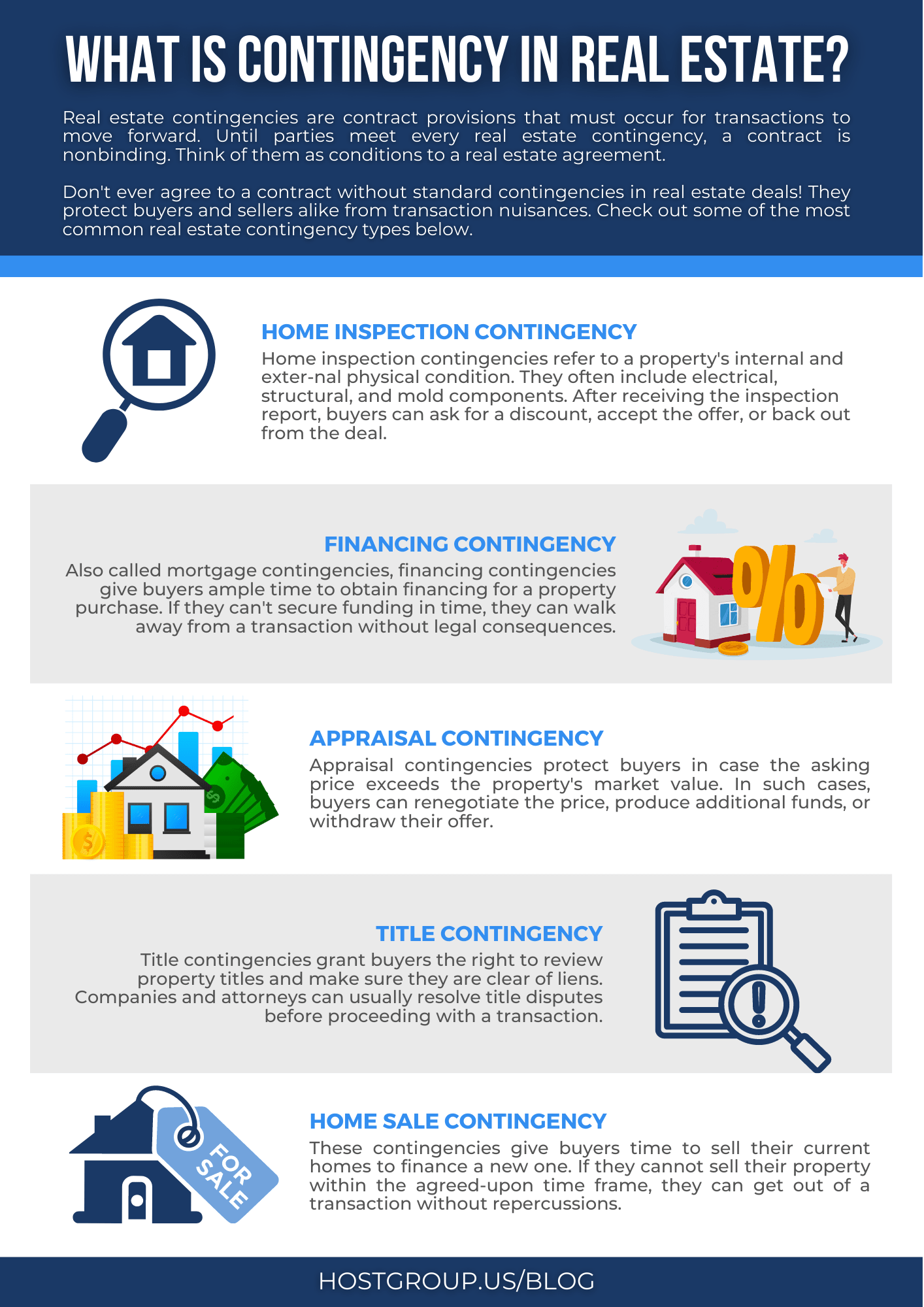Contingency in real estate is a provision in a real estate contract that needs to occur in order for the transaction to proceed to the next step. The same is true for the inverse—if the real estate contingency in the contract is not met, the real estate contract is considered null and void. Think of it as a condition, in simpler terms.
Contingencies are present in every real estate contract in order to provide some form of protection for both the buyers and the sellers. Some contingencies are more standard than others and appear in just about every contract.
Here are a few of the most common real estate contingencies so you can go about your transaction armed with the right knowledge.
Home Inspection Contingency
As a buyer and seller, it’s important for you to get a full picture of the physical condition the property is in. Both internal and external conditions are considered in this contingency, including mold or damage done by pests and termites. Once the home inspection is done, you will have a full detailed report of the property.
The final, detailed report then leaves the buyer with three options: they may ask for a discount on the asking price so they can work on the repairs, accept the offer and make the repairs themselves, or back out of the deal altogether.
Financing Contingency
If the buyer is looking to purchase the home using a mortgage, a financing contingency is crucial. This contingency gives you the opportunity to secure a loan from the financing company first prior to purchasing the property.
The financing contingency allows the buyer to walk away from the deal without any loss of deposit or repercussions in case the loan falls through at the last minute or they are unable to secure financing in time. This contingency is also the reason why sellers prefer buyers who are on a cash basis.
Appraisal Contingency
The appraisal contingency works hand in hand with the financing contingency. An appraisal determines the fair market value of a property. This contingency ensures that the buyer stays unscathed if the asking price is higher than the fair market value.
Let’s say the property is being sold for $350,000, but the appraisal only comes at $280,000. The mortgage company will only loan the fair market value of the property, which is $280,000, leaving the buyer short by $70,000. The buyer has the option to renegotiate the selling price with the seller, find another source of additional financing, or back out of the deal altogether (without repercussions).
Title Contingency
The title of a property is the legal record of the history of its ownership, both past and present. An attorney typically reviews the title of the property so it’s transferred to you without any issues. Usually, issues with the title are easily resolved by the title company or the attorney prior to the buying process.
There are cases, however, that the title lacks clarity. It could be that the seller cannot legally prove that they own and have the authority to sell the property or that the property has debt that the buyer is required to pay off first. Either way, the title contingency clause allows the buyer to walk away from the transaction without any repercussions.
Real Estate Contingency Infographic

Home Sale Contingency
Most of the time, homeowners shop for new homes while still retaining their old one. In the event that they are unable to sell their property in the specified amount of time or within the asking price, they can walk out of the deal without being penalized by the real estate sellers.
You can see how the home sale contingency can be difficult for sellers. They may be forced to pass up other opportunities or buyers while waiting on that one buyer.




